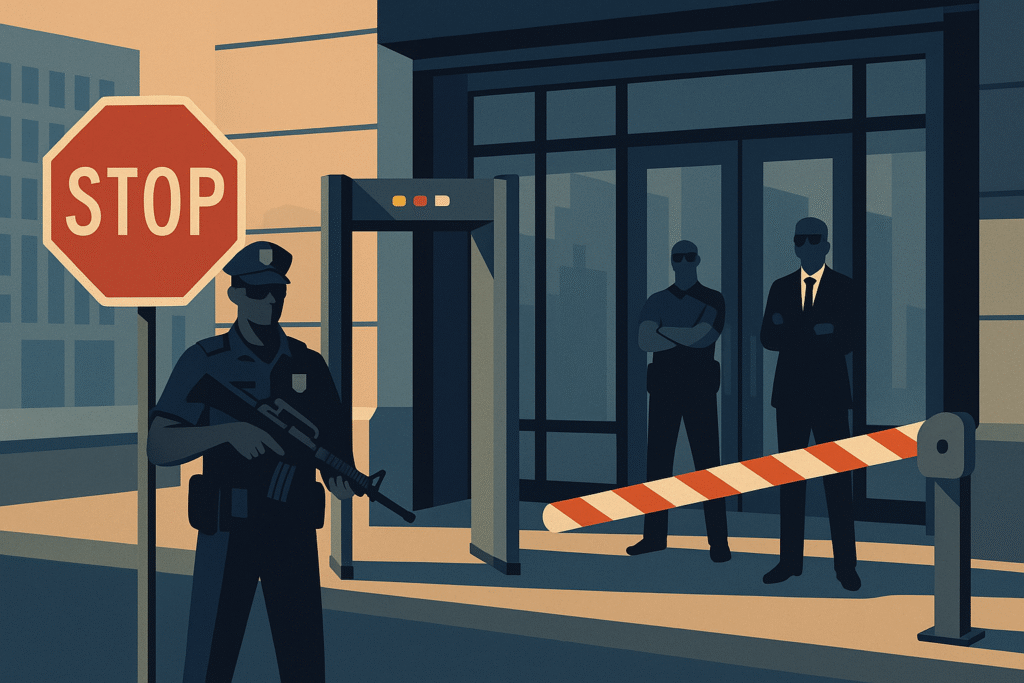A tragic mass shooting at Blackstone’s global headquarters on Park Avenue has left four people dead and sent shockwaves through the heart of the U.S. financial sector. The attack, which unfolded Monday evening, has prompted a sweeping reassessment of corporate security strategies across New York’s business community.
Among the victims was Wesley LePatner, a 43-year-old managing director at Blackstone and one of the most respected women in U.S. finance. A mother of two and a rising figure in New York’s philanthropic scene, LePatner was known for her leadership within Blackstone’s real estate division and her recent appointment to the board of the Metropolitan Museum of Art.
The gunman, identified by the NYPD as Shane Tamura, 27, entered the building carrying an openly visible assault rifle and fatally shot four individuals, including Didarul Islam, an off-duty NYPD officer working building security. Tamura’s rampage ended when he took his own life on the 33rd floor after shooting a fourth victim inside the offices of the building’s owner, Rudin Management.
Authorities believe Tamura’s intended target may have been the National Football League (NFL), which shares office space at 345 Park Avenue, citing a three-page suicide note in which he blamed the sport for causing chronic traumatic encephalopathy (CTE), a degenerative brain condition linked to repeated head trauma.
Corporate Security Under Scrutiny
The shooting has reignited debates over corporate and building security, especially as it occurred despite existing protective measures, including the presence of an armed police officer on site. Experts say this highlights the difficulty of preventing attacks by individuals prepared to die in the act.
“If someone is willing to trade their life for yours, it’s extremely difficult to defend against,” said Tim Gallagher, a former FBI executive and current managing director at Nardello & Co.
Blackstone CEO Stephen Schwarzman and President Jonathan Gray addressed the company’s 5,000 employees following the tragedy, describing the incident as “the worst day in the firm’s history.” Gray, visibly emotional during a company-wide call, paid tribute to LePatner, praising her as a brilliant and compassionate colleague.
Rising Demand for Enhanced Safety Protocols
In the wake of the attack, major office landlords, including Brookfield Properties, have reported a surge in inquiries from tenants about bolstering security. Several companies are now considering advanced technology like AI-powered surveillance to detect firearms and training programs for staff to respond to active shooter scenarios.
Some security professionals believe the event could accelerate the adoption of stricter building access controls. While Blackstone’s headquarters is secured with steel and glass barriers, the elevators reportedly lack modern security features seen in newer developments.
“We’re now discussing armed guards, controlled access systems, and even architectural redesigns,” said the CEO of a major New York investment bank. “What once seemed excessive — like double-entry security systems — may now be essential.”
Limits of Prevention
Despite increased awareness, experts caution that not all threats can be neutralized.
“Once someone walks in with an AR-15, who’s there to stop them?” said one executive. “This building had an armed guard — and he was killed. You can’t have Seal Team Six at every lobby.”
Statistics show a broader trend in rising security investment. According to ISS-Corporate, the median security spending on S&P 500 CEOs rose from $15,671 to $28,382 last year. Many companies are now accelerating reviews of their crisis preparedness, especially in light of this and the December 2024 assassination of UnitedHealth executive Brian Thompson.
“Smart companies are now asking: what does best-in-class security really look like?” said the head of security at a U.S. healthcare company.
As New York continues to grieve, the shooting has become a sobering catalyst for corporate America, forcing business leaders to reckon with the risks their employees face — even within the supposed safety of prestigious office towers.


